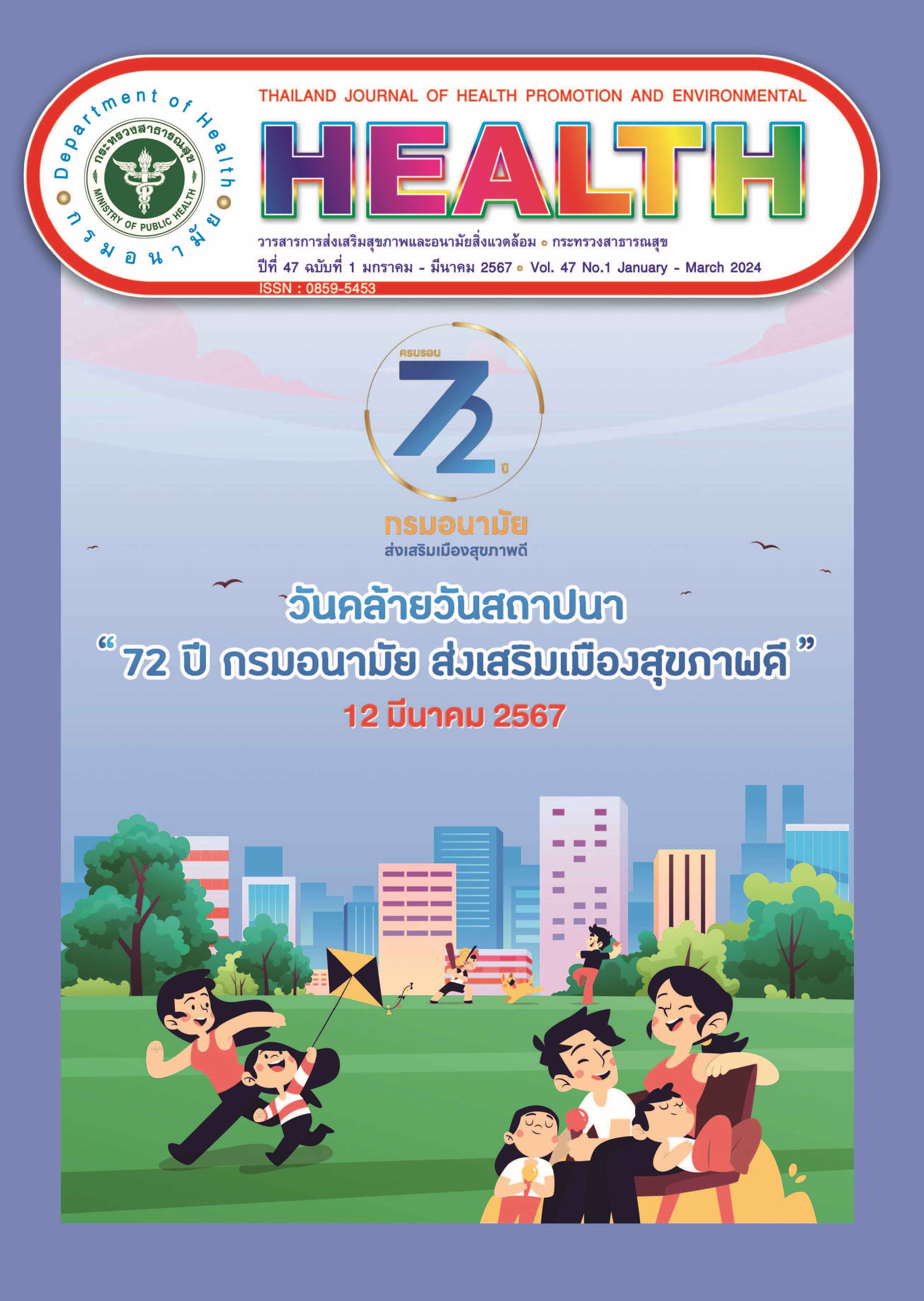Developing a Model for Driving the Operation to Improve the Quality of Life in the District Health Board, Phetchaburi Province
Keywords:
promoting quality of life development at the district level, caring for vulnerable groups, lessons learnedAbstract
Phetchaburi Province emphasizes improving the quality of life in its districts in caring for vulnerable groups. However, there still needs to be a clear, concrete model for driving quality of life development at the district level, tailored to the local context. The study aimed to 1) to investigate the different approaches for promoting quality of life development at the district level in Phetchaburi province, 2) to establish models for driving quality-of-life development at the district level, with a specific emphasis on caring for vulnerable groups, 3) to evaluate the effectiveness of the model for driving quality-of-life development at the district level. Method Research & Development The study was carried out in three phases. During Phase 1, the model was examined, and qualitative data was collected through in-depth interviews and group discussions. Phase 2 Developed model and evaluated the effectiveness of a quality of life development model for vulnerable groups by collecting qualitative data through an in-depth interview and group discussion. And Phase 3 By taking lessons from the model, expanded the results of using it to serve vulnerable groups. Data was collected through various methods, such as lessons learned, reflection, service enrollment numbers, and satisfaction surveys from a random sample of 99 participants. Statistical analysis was conducted, including frequency, percentage, mean, standard deviation, and qualitative analysis. Based on the findings, policy recommendations were formulated. The result showed that the research findings revealed that Phetchaburi province had various elements in place to improve the quality of life at the district level. These included 1) clear policies, 2) strong leadership teams, 3) the establishment of a local development committee, 4) the utilization of community-based spaces, and 5) the creation of shared values. Furthermore, the model for enhancing quality of life and supporting vulnerable groups involved a series of steps. These steps included 1) appointing a sub-district quality of life development committee, 2) providing capacity building for the committee, 3) conducting collaborative problem analysis and definition, 4) formulating a plan to support vulnerable groups, 5) obtaining a budget, 6) implementing the plan with the participation of all stakeholders, 7) consistently planning, monitoring, and evaluating, 8) extracting lessons learned, and 9) providing feedback to the community, involving both beneficiaries and contributors. After evaluating the effectiveness of the model for enhancing quality of life and supporting vulnerable groups at the district level, it was observed that the integration of these efforts resulted in a 100% improvement in the quality of life for the vulnerable group. This improvement met the UCCARE quality criteria in eight districts. Service providers expressed the highest level of satisfaction, with an average score (x ̅) = 4.52, while the vulnerable group indicated a high level of satisfaction, with an average score (x ̅) = 2.40. In conclusion, Based on the findings, advancing the quality of life at the district level, particularly in caring for vulnerable groups in Phetchaburi province, requires collaboration across multiple sectors, clear policies, strong committees, and effective leadership teams. Collaborative problem analysis and solutions definition are critical, alongside the implementation of supportive plans and budgets. Continuous monitoring and evaluation are essential.
Downloads
Published
Issue
Section
License
Copyright (c) 2024 Thailand journal of Health Promotion and Environmental Health

This work is licensed under a Creative Commons Attribution-NonCommercial-NoDerivatives 4.0 International License.

